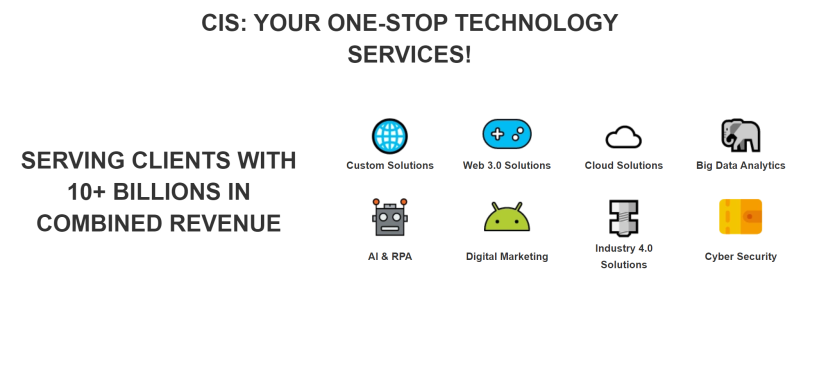Maximizing ROI: The Cost and Benefits of Adopting Sap For Financial Services for Your Business
- SAP for Financial services - Detailed Analysis by Enterprise Solutions Experts
Request A Free Consultation - Why Use SAP For Financial Services



Why Mid-size Companies and Enterprises needs SAP For Financial Services:
SAP for Financial Services is a suite of software solutions designed to help mid-size companies and enterprises manage their financial operations more efficiently. It provides an integrated platform that allows users to access information from multiple sources, streamline processes, and gain insights into their business performance. SAP for Financial Services helps organizations automate manual tasks, improve customer service levels, reduce costs associated with managing finances, increase compliance with regulatory requirements, and enhance overall operational efficiency. Additionally, it can be used to support strategic decision making by providing real-time data analysis capabilities.
Benefits of using SAP For Financial Services in Mid-size companies and Enterprises:
1. Increased Efficiency:
SAP for Financial Services helps mid-size companies and enterprises streamline their financial processes, improving efficiency and reducing costs. By automating manual tasks, such as accounts payable and receivable, SAP enables faster processing of transactions resulting in improved customer service and better decision making.
2. Improved Compliance:
With the help of automated controls embedded within the system, compliance with industry regulations is easier to maintain than ever before. This helps organizations remain compliant with local laws while also meeting global standards for data security and privacy protection.
3. Enhanced Security:
SAP for Financial Services provides a secure environment for sensitive information by using advanced encryption techniques that protect data from unauthorized access or manipulation by hackers or other malicious actors. It also allows organizations to monitor user activity in order to detect any suspicious behavior quickly so that it can be addressed promptly if needed.
4. Comprehensive Reporting Capabilities:
The reporting capabilities provided by SAP enable users to gain insights into their financial performance in real time allowing them to make more informed decisions faster than ever before possible without sacrificing accuracy or reliability of results obtained from reports generated through the system's analytics engineDetailed Features of SAP For Financial Services for Mid-size companies and Enterprises:
1. End-to-End Financial Process Automation:
SAP for Financial Services provides end-to-end process automation, enabling mid-size companies and enterprises to streamline their financial processes and reduce manual effort. This includes automating accounts payable, accounts receivable, bank reconciliation, general ledger management, reporting, budgeting and forecasting.
2. Regulatory Compliance:
SAP for Financial Services helps mid-size companies and enterprises stay compliant with local regulations by providing up to date information about changes in accounting standards or other relevant laws. It also helps ensure that all transactions are properly documented and reported according to the latest requirements of regulators.
3. Risk Management:
SAP for Financial Services enables mid-size companies and enterprises to identify potential risks associated with their financial operations through advanced risk analytics capabilities such as stress testing scenarios or liquidity analysis tools. This allows them to take proactive steps towards mitigating any potential risks before they become a problem.
4. Business Intelligence & Analytics:
SAP for Financial Services offers powerful business intelligence (BI) tools which enable users to gain deeper insights into their organization's performance by analyzing data from multiple sources across different departments within an organization in real time.. With this information at hand, decision makers can make more informed decisions regarding strategic planning or operational improvements quickly without having to wait on long reports from various departments within the company .
5. Flexible Integration Options:
SAP for Financial Services offers flexible integration options so that it can be easily integrated with existing systems like ERP solutions or third party applications used by organizations allowing them easy access of data stored in these systems while eliminating manual efforts involved in entering data manually into the system every time there is a change made outside of it .Who are the Users of SAP For Financial Services:
SAP for Financial Services is used by a variety of customers, including banks, insurance companies, asset managers, and other financial services organizations. These customers use the software to manage their finances more efficiently and securely.
How to ensure Data Security and Compliance with SAP For Financial Services:
1. Implement role-based access control (RBAC):
RBAC is an effective way to ensure data security and compliance with SAP for Financial Services by granting users only the necessary permissions to perform their job functions.
2. Establish a secure authentication process:
A secure authentication process should be established in order to protect sensitive financial data from unauthorized access or manipulation. This can include two-factor authentication, biometric authentication, or other methods of verifying user identity.
3. Utilize encryption technology:
Encryption technology should be used when transmitting and storing financial information on SAP systems in order to protect it from unauthorized access or manipulation.
4. Monitor system activity:
Regular monitoring of system activity is essential for ensuring data security and compliance with SAP for Financial Services as it helps identify any suspicious behavior that may indicate a potential breach of security protocols or regulations such as GDPR and PCI DSS requirements .
5. Implement regular patching cycles:
Software patches are important for closing vulnerabilities that could allow malicious actors to gain access to sensitive financial information stored on SAP systems; therefore, they should be applied regularly in order to maintain optimal levels of security and compliance with applicable regulationsHow SAP For Financial Services can increase organization Productivity, Agility, and Profitability:
SAP for Financial services can help organizations increase productivity, agility, and profitability by providing a comprehensive suite of software solutions that support the entire financial services value chain. This includes solutions to automate operational processes such as payments, collections, reporting and compliance; integrated analytics to gain insights into customer behavior and market trends; advanced risk management tools to identify potential areas of concern; and cloud-based technology to enable faster deployment of new products and services. By leveraging these technologies, organizations can reduce costs associated with manual processes while increasing efficiency in their operations. Additionally, they will be able to quickly respond to changing customer needs or emerging opportunities in the marketplace.
How to Measure KPIs and increase Benefits of implementing SAP For Financial Services in Mid-size companies and Enterprises:
1. Develop a plan for implementation and define the KPIs:
Define what specific objectives you want to achieve with SAP for Financial Services, such as cost savings, improved customer service or increased operational efficiency. Identify the metrics that will be used to measure these objectives (KPIs).
2. Establish baseline performance:
Before implementing SAP, it is important to understand how your company currently performs in terms of the identified KPIs. This will provide a benchmark against which improvement can be measured after implementation.
3. Monitor performance during and after implementation:
During and after implementing SAP for Financial Services, monitor performance closely using the defined KPIs to identify any improvements or issues that need addressing before full deployment is complete.
4. Analyze data regularly:
Regularly analyze data collected from monitoring activities in order to assess whether benefits are being achieved from using SAP for Financial Services and make adjustments where necessary in order to maximize returns on investment (ROI).
5. Communicate results and feedback:
Share results with stakeholders regularly so they can see progress made towards achieving goals set out at the start of the project as well as determine if additional resources may be required in order to reach those goals faster or more efficiently than originally plannedHow SAP For Financial Services can increase Employee Morale in your organization:
SAP for Financial services can increase organization employee morale by providing employees with access to better tools and resources that will help them do their jobs more efficiently. This could include access to financial analytics, budgeting and forecasting software, automated workflow processes, integrated customer relationship management systems, or other specialized solutions tailored specifically to the needs of the financial services industry. By having these resources available at their fingertips, employees may feel more empowered and confident in their work which can lead to increased motivation and morale. Additionally, SAP for Financial Services can provide organizations with greater visibility into operations which might result in improved job satisfaction due to a sense of being more connected to the company's overall success.
How SAP For Financial Services is Better than its Competitors:
SAP for Financial Services offers a comprehensive suite of solutions tailored to the specific needs and challenges faced by financial services organizations. This includes everything from core banking, risk management, and compliance solutions to analytics and customer experience platforms. SAP's offerings are designed to help financial institutions manage their operations more efficiently while also providing them with better insights into customer behavior and preferences. Additionally, SAP provides advanced security features that ensure data is kept safe from malicious actors. Finally, SAP's open platform allows customers to easily integrate third-party applications into their existing systems - giving them even greater control over their processes and data.
Cost to Develop & Implemention of SAP For Financial Services:
The cost of developing and deploying SAP for Financial Services will depend on the scope of the project, as well as any additional features or customization that might be required. Generally speaking, a typical implementation can range from $50,000 to several million dollars.
Why outsourcing implementation services for SAP For Financial Services is better for Mid-size companies and Enterprises:
Outsourcing implementation services for SAP for Financial Services is better for mid-size companies and enterprises because it offers a cost-effective solution that can help them quickly adopt the latest technology. This can help reduce costs associated with training, staffing and hardware upgrades. Additionally, outsourcing allows these organizations to access expertise from experienced professionals who are familiar with the product, which can ensure successful implementations. Furthermore, outsourcing provides scalability so that businesses can scale up or down as needed without having to invest in additional resources or personnel. Finally, by utilizing an external provider's services, mid-size companies and enterprises benefit from increased flexibility due to their ability to customize solutions according to their specific needs.


